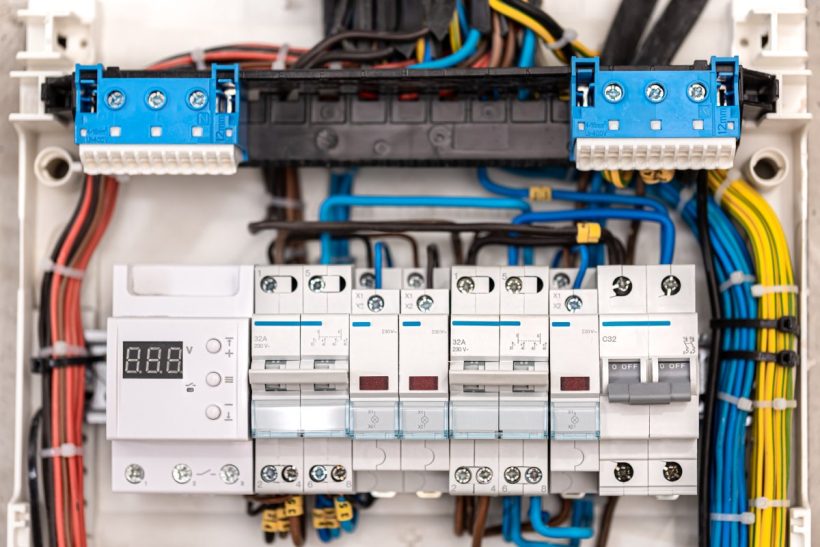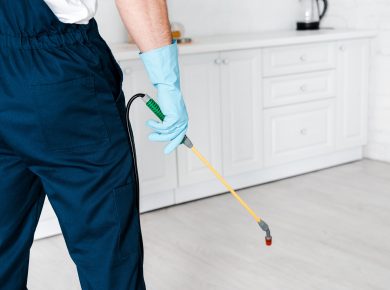Circuit breakers are a vital component of any electrical system – but, have you ever wondered what they actually do? What are circuit breakers? Why are they so important? And where are circuit breakers used?
In this blog post, we will answer all of these questions and more. If you’d like to gain a better understanding of circuit breakers, read on and we’ll tell you everything you need to know.
What are circuit breakers?
A circuit breaker is an electrical safety device that helps protect electrical circuits and equipment from damage. It works by automatically breaking the electrical connection when an overload current is detected. Circuit breakers are designed to detect and protect against short circuits and overloads, both of which can cause damage to wiring, appliances, and other electrical equipment.
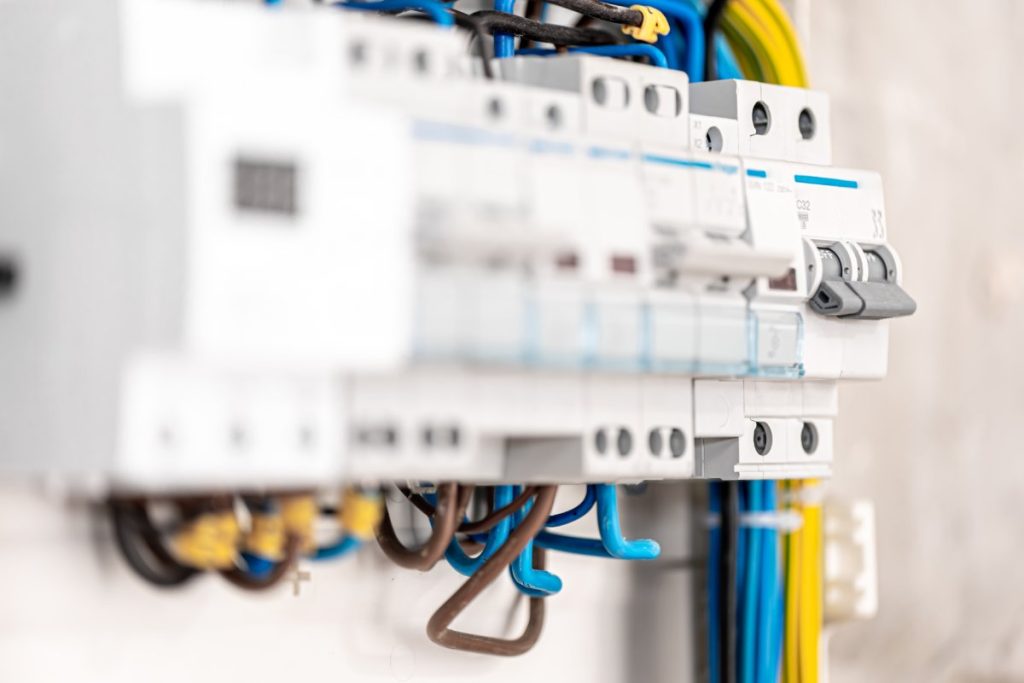
What are the internal components of a circuit breaker?
And what are the internal components of a circuit breaker? By understanding what’s inside, you’ll be able to better understand how they do their job.
Circuit breakers are composed of three main components: the trip unit, the contact arm, and the bimetal. Here’s a closer look at how each component works:
- The trip unit: the trip unit is the computer that senses current flow and stores the electrical data within the breaker, allowing it to react quickly when an overload occurs.
- The contact arm: the contact arm is the physical part of the circuit breaker that moves when the trip unit senses a problem. This arm opens and closes the electrical circuit, allowing electricity to flow when the circuit is closed and thereby preventing electricity from flowing when the circuit is open.
- The bimetal: the bimetal is a metal strip that bends in response to the heat generated from a large amount of electricity in the circuit. This bending causes the contact arm to move, thus turning the circuit off and protecting the electrical system.
Why is a circuit breaker important?
And why is a circuit breaker so important? Circuit breakers are important for two primary reasons:
- First, they protect the wiring and electrical equipment from damage caused by overloads and short circuits (which can be costly).
- Second, they can prevent fires and other safety hazards, such as electric shock, by quickly breaking the electrical connection (which can otherwise be life-threatening).
Where are circuit breakers used?
Circuit breakers are typically used in residential, commercial, and industrial settings. In a residential setting, circuit breakers are generally located in the main electrical panel (which can be inside the house, in the garage, or to the side of the building outside).
In commercial and industrial settings, circuit breakers are used to protect high-voltage equipment.
Simply put, anywhere there is an electrical system with a variety of appliances and machinery, circuit breakers will be present.
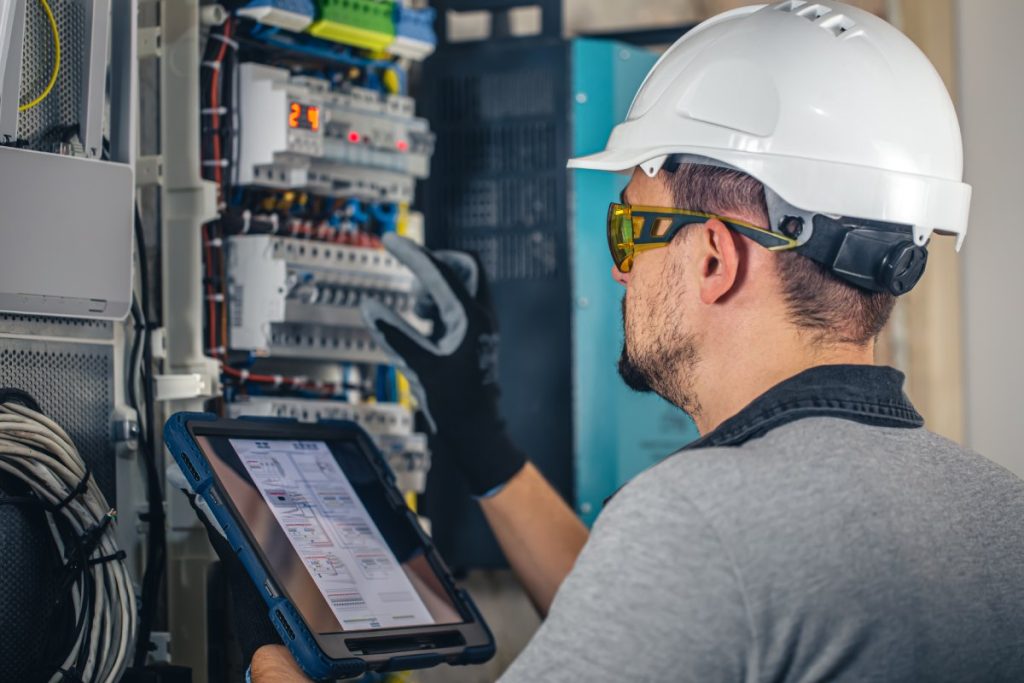
How often should a circuit breaker be replaced?
As most high-quality circuit breakers have a lifespan of about 30 to 40 years, you shouldn’t have to worry about replacing yours any time soon. In any case, you definitely need to have it routinely checked and maintained by a professional and certified electrician – especially if you want it to last as long as possible.
Of course, if you have lots of trouble with your circuit breaker and it keeps tripping for no good reason, it could be time to have yours replaced and upgraded. Again, consult the professionals and invest in a quality circuit breaker from a reputable manufacturer like SQD Group Products and you’ll be set!
Do you need to be an electrician to repair or install a circuit breaker?
Yes, you need to be an electrician to repair or install a circuit breaker. Circuit breakers are connected to a system of wires, so it is important that they are installed correctly. If you’re not an electrician, it is best to hire one for the job just in case.
Technically speaking, you can follow instructions and use your tools to install a circuit breaker by yourself, however, you would be breaking the law because you will be putting yourself and your family at serious risk in doing so.
It’s never worth it! Always hire professionals to ensure a thorough job. Leave no room for error!
Why does my circuit breaker keep tripping?
Circuit breakers trip when the amperage of the current in the circuit exceeds the rated load of the breaker. This can happen due to a variety of reasons, such as an overloaded circuit, short circuits, faulty wiring, or even a defective appliance or device connected to the circuit. The best way to determine the cause of the tripping is to identify the source of the power overload and then respond accordingly.
Again, in this situation, if you are unsure, it’s always worth contacting your emergency electrician and having them identify the source of the problem on your behalf. That way, you can have it resolved as quickly as possible – and thus restore your property to safety once more.
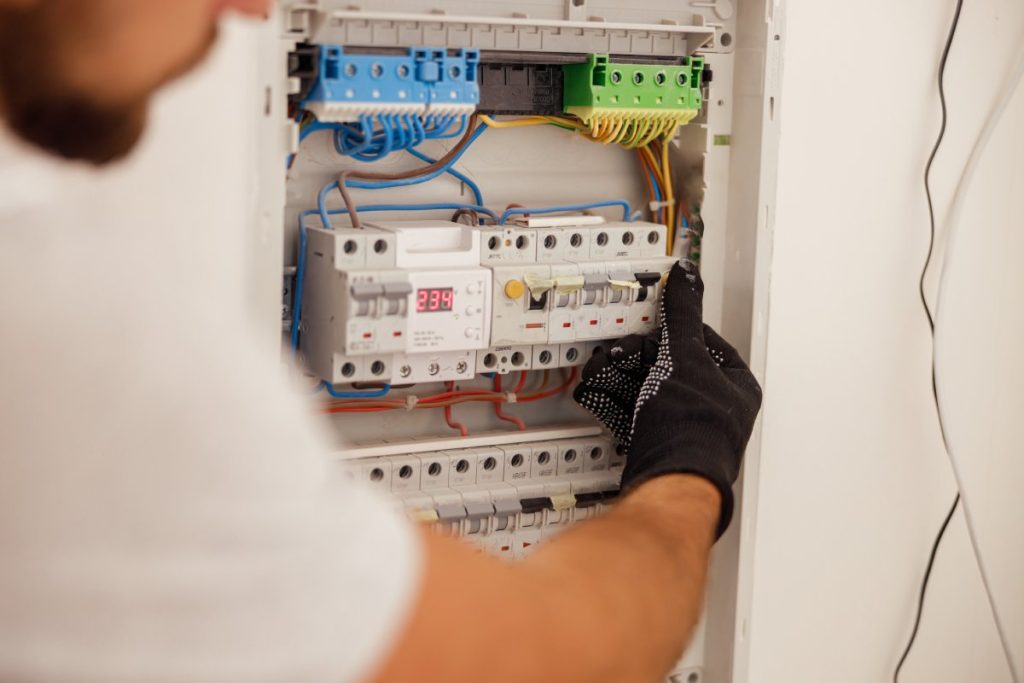
Can you have more than one circuit breaker? In what situation is it worth having an additional circuit breaker installed?
Yes, it is possible to have more than one circuit breaker in a home. This is often necessary when there are multiple rooms or areas of the house with different power requirements. For example, a home with a swimming pool may require a separate circuit breaker for the pool pump and other pool-related appliances. Additionally, if a circuit is too small to handle the electrical load of all of the appliances connected to it, multiple circuit breakers can be used to provide the necessary current.
If you are uncertain as to what your requirements are—you guessed it—give the professionals a call and they can advise you accordingly.
Conclusion
Circuit breakers are an important part of any electrical system. They protect wiring, equipment, and people from damage due to overloads and short circuits. In fact, they save lives on a daily basis and as such, they should be checked and maintained regularly to ensure that they are in good working order. Look after them and they’ll look after you!
